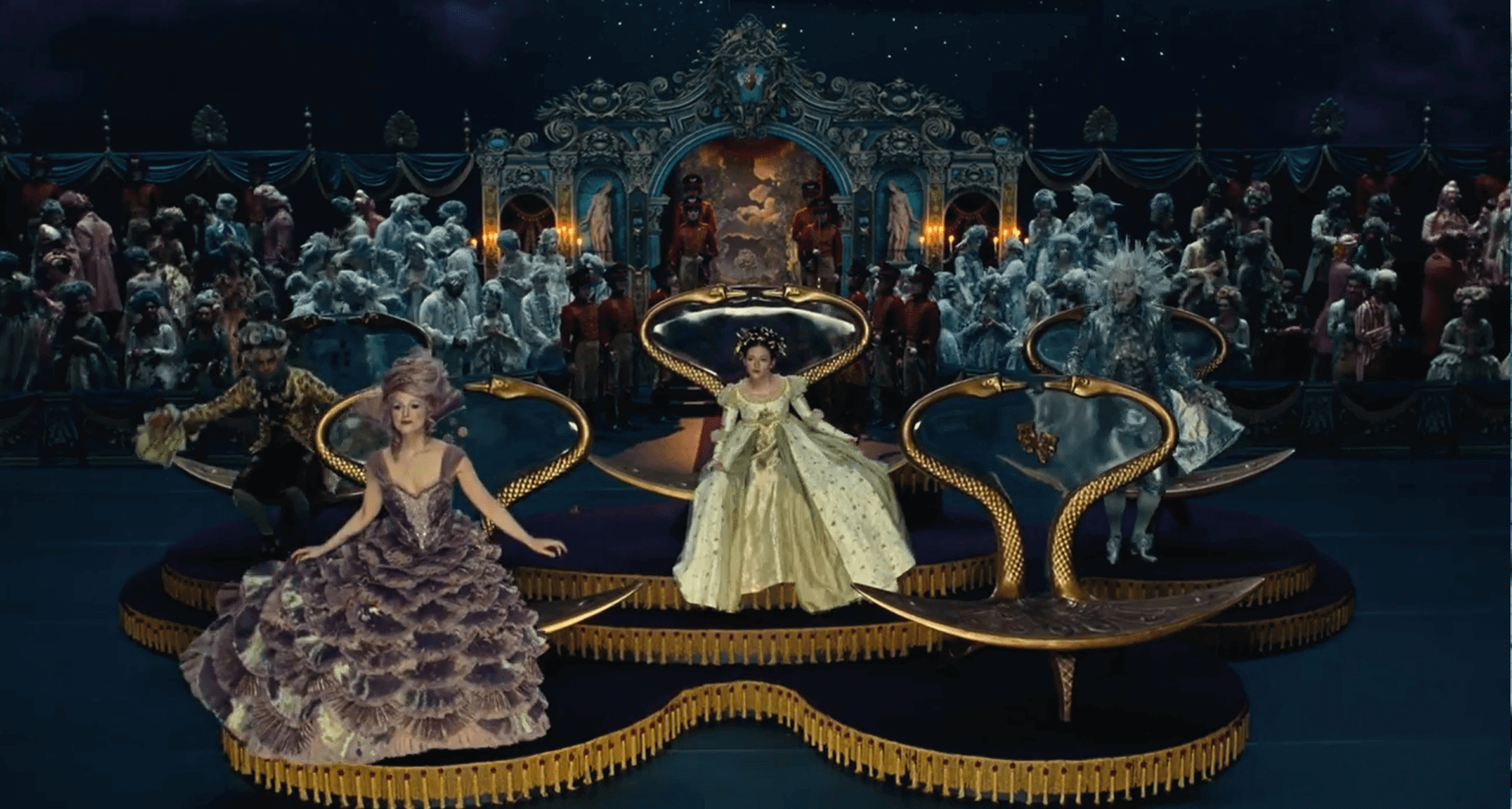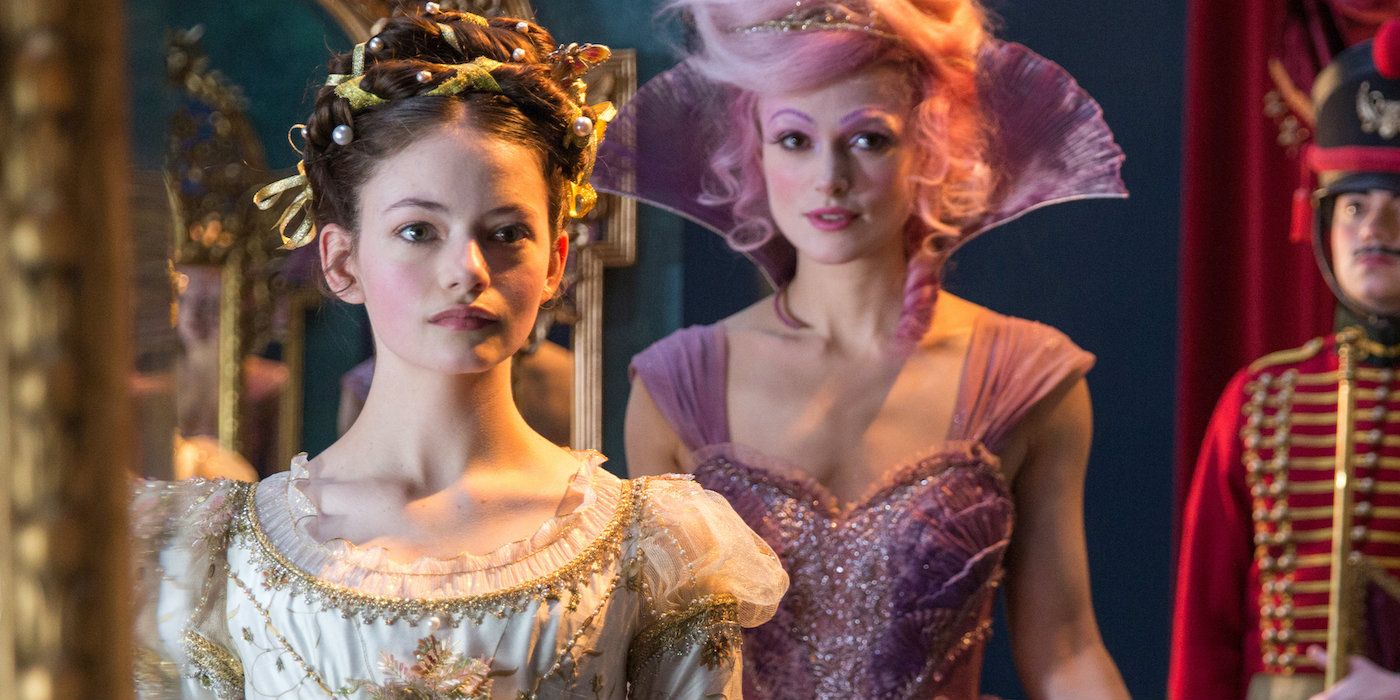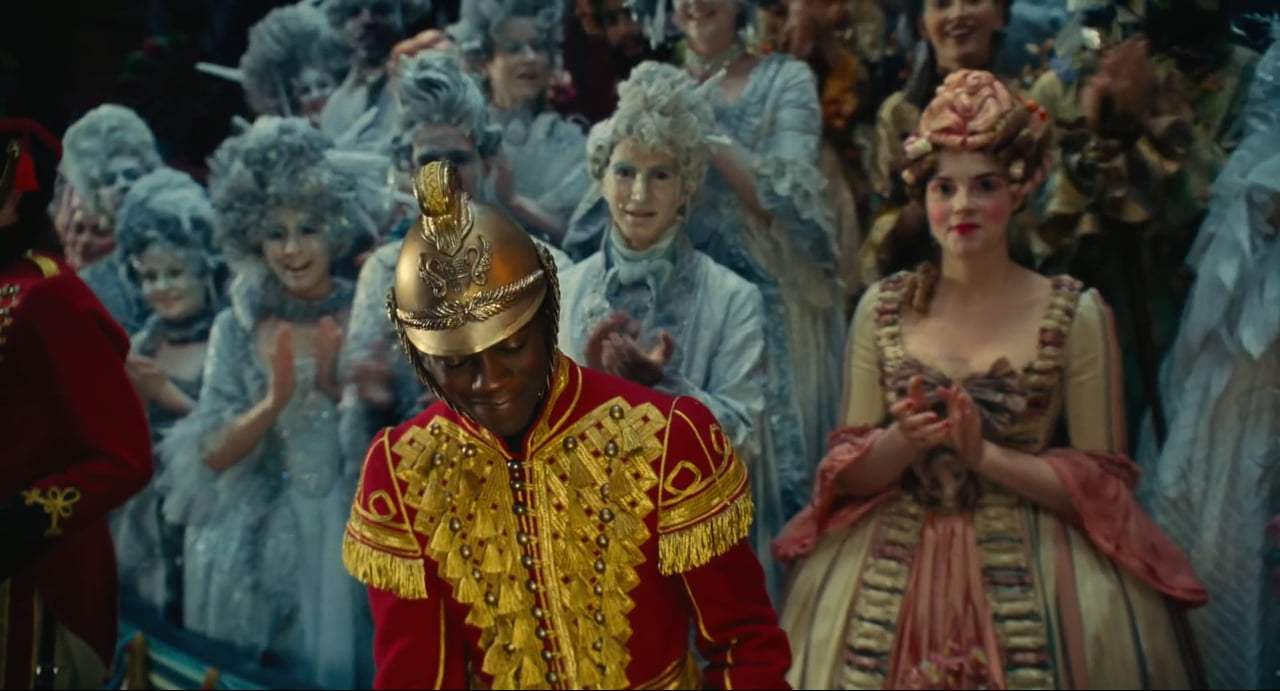Final Verdict: For history buffs and those wanting to learn more about the Apollo 11 mission, First Man is a must see.
Wednesday, November 13, 2019
First Man Is A Powerful And Absorbing Drama In Showing One Mans Desire To Achieve The Impossible
When one thinks of a compelling space movie, Alfonso Cuaron's Gravity comes to mind. When one thinks of a well-executed biographical space drama, that's only thrilling but transports audiences into space and putting them in the moment, Ron Howard's Apollo 13 is the film that best matches that description. With First Man, La La Land director Damien Chazelle and Ryan Gosling prefer to take things in a more personal direction with the film focusing on the life of Neil Armstrong, as well as showing the journey towards setting foot on the Moon with rigorous training that Armstrong and other Astronauts endured which included tragic misfires. Although designed to be a biographical drama, Chazelle and Gosling craft this film to feel like an experience for the audience to become apart of in showing a more personal journey towards landing on the moon. Originally was set to be directed by Clint Eastwood, the project landed in the hands of Damien Chazelle, who later casted Gosling in the lead role after working together on La La Land. Despite the film receiving critical acclaim for numerous aspects of its production such as the directing, the performances, the score, and breathtaking moon landing sequence, the movie ended up being a commercial disappointment grossing just $105 million worldwide and sparking further controversy regarding the film not showing the planting of the U.S flag on the moons lunar surface, prompting audiences to question the films political motives. The film was ultimately nominated for four Academy Awards which included Best Visual Effects, Best Sound Editing, Best Production Design, and Best Sound Mixing. Despite the movies disappointing box office return and controversy, First Man is a well put together and emotional experience as the film shows the landing on the Moon from a more personal perspective, which is that of the man that set foot on it.
Based on the bestselling book by James R. Hansen, First Man focuses on the life of astronaut Neil Armstrong with the film serving as a chronicle of his journey to the Moon with the film also exploring the NASA program, which helped pull off the extraordinary human achievement that took place on July 20th, 1969. This is Neil Armstrong's story and the film shows his journey into traveling to space to be one that's amazing, powerful, heartbreaking, and ultimately a triumphant moment for those involved. First Man is not just any typical biographical drama, its an experience that the audience becomes invested in if they have the patience for the films slow pacing. The films story is not fast moving in any sense and works as being a slow-burner in terms of setting up the characters, and showing the rigorous efforts NASA put into whats arguably one of its most defining moments. With First Man, audiences get to not just relive seeing man walk on the Moon, but get to know Neil Armstrong on a more personal level. From the start, Armstrong is shown to be a sympathetic American figure who turns personal loss and imagination into the ultimate determination to see his goal as well as NASA's become a reality. The filmmakers make a point in stressing that Armstrong's action is ultimately a brave and remarkable one as he see's first hand the consequences of what could happen if things go wrong, and the mission backfires as evidenced through the loss of the other Astronauts in the film. The building up of the side characters in the film, particularly the Astronauts associated with Armstrong who end up dying during training, are rightfully explored to show that despite the tragedy that occurs within the story with their characters, it makes Armstrong's willingness to finish their journey a true act of heroism, as well as a desire to take mankind further out in terms of showing its capabilities. First Man is all about exploring the heart and soul of its main character, as well as showing what a complicated and ultimately incredible decision it was that was made to go into outer space when knowing the full dangers and consequences of doing so. The film also gives a glimpse into Armstrong's family life by showing his wife, played brilliantly by Claire Foy, fear for her husbands life as he gets more engulfed with his training.
As far as the acting performances go, the cast behind First Man does an amazing job and all bring believability to their parts with the best performances easily coming from Ryan Gosling and Claire Foy (Who was wrongfully snubbed of an Oscar nomination). Gosling gives a strong performance as Neil Armstrong, portraying him as a man who desires to reach for the stars while experiencing the loss of friends and loved ones along the way. His depiction of Armstrong is an intimate portrayal with Gosling masterfully conveying the toll, that the training for the mission takes on his character. Claire Foy does an equally great job playing Armstrong's wife Janet Armstrong. Much like Kathleen Quinlan's performance in Apollo 13, Foy gives an impressive yet understated performance as she takes the cliched subplot involving the wife stuck at home and forced to listen to audio recordings of her husbands test missions or pieces of news she receives that happens in many space dramas and runs with it. Foy doesn't act in Goslings shadow, instead she meets him head on and delivers an equally great performance, that should've warranted an Academy Award nomination for Best Actress. One of her most impressive acting moments is a sequence in which her character begins to lose it when the audio goes out during her husbands test run for landing on the Moon. Making the decision to spare Armstrong's family of any further pain or stress given the intensity and struggle of the training, NASA decides to cut her out of the loop in terms of receiving news. Fed up and not having anymore of it, Janet storms over to NASA's Houston base and delivers a piece of her mind to NASA's Director Of Flight Operations Deke Slayton (Played by Kyle Chandler). Unleashing tears of rage and frustration over the mission, she shouts "All these protocols and procedures to make it seem like you have it under control. But you're a bunch of boys making models out of balsa wood. You don't have anything under control!" Foy and Gosling work great together, not only sharing chemistry but easily delivering the two strongest performances in the film. House Of Cards Corey Stoll shines as Buzz Aldrin, as well as the always reliable Kyle Chandler as Deke Slayton, and Terminator Genisys and Pet Semetary's Jason Clarke as fallen Astronaut Ed White. Clark's character has the most significant arc out of the three as his real life character is used as a device to enhance both the fear and stress that the Armstrong family carries over the mission, especially the devastating twist that comes later involving his character. Other notable supporting roles are Lukas Haas as Mike Collins and Patrick Fugit as Elliot See Overall, the cast as a whole does a fantastic job of bringing their real life counterparts to life, and adding both believability and tension to a story about mankind stepping out of its comfort zone and extending it's reach in terms of it's capabilities.
The directing by Damien Chazelle is well-executed and effective in terms of bringing Armstrong's story to the big screen. He utilizes beautiful yet vivid cinematography, that captures the emotions on the actors faces while putting the audience directly in the scene. The continuous use of shaky camera adds to the realism of the scenes as Chazelle chooses to allow the actors and the scene do the work themselves. The moments where it shows the astronauts training or the sequences in space are where the film hits it's technical stride. Given that the movie is a biographical space drama, Chazelle's approach to the films style of directing gives it an indie feel, which can be off putting for some who were expecting more of a space exploration film rather than a personal biographical drama. Chazelle succeeds at blending the two together and creating an experience for the audience that's moving, personal, and inspiring with the film showing the sacrifices made for mankind to pull off such a remarkable achievement. The films score by Justin Hurtwitz is one of the films main highlights, giving the films climactic sequence a majestic type feel while enhancing the drama during the films emotional scenes. The score is well deserving of it's Golden Globe win for Best Score, and is a shame it didn't receive an Oscar nomination for Best Score. The films visual and sound effects are top notch, making the moments in space (Particularly the films third act) worth sitting through the rest of the film for as the ultimate payoff feels grand, epic, and powerful. The films Moon landing sequence conveys a mixed batch of emotions, that makes it the overall sequence feel amazing with Hurtwitz's score to elevate it. Chazelle and the crew behind First Man go to extreme lengths to mark this sequence as not just being a momentous sequence in history, but also for the audience who saw the film in theaters.
The screenplay by Josh Singer is well-written, earning it's title of being a piece of hard-hitting drama while giving insight into the process of getting Apollo 11 off the ground. Singer uses Armstrong's personal journey as a way to deliver fuel to the film with audiences seeing the moon landing through a lense, that makes it both relatable and more understandable. With Singers script, audiences feel the stress, the tension, the fear, and toll that the famous NASA mission took on those who fought (And in some cases died) to place a man on the moon. With Armstrong's arc, Singer makes a point to remind audiences that the Apollo 11 mission wasn't just a simple one, but demanded a huge level of bravery and sacrifice in order to make it successful. In regards to the films controversy regarding the lack of the American flag being placed on the moon, Singer doesn't craft the script in a way that flashes American patriotism in people's faces. The story does focus on America's race to beat the Russians to making it to the Moon first, but also makes it a point to drive home the theme that the Moon landing was an achievement not just for America, but for mankind as a whole. The film is also about showing mankind at the time being willing to step out of it's comfort zone and take a huge risk despite the public's confusion as to why so much money, resources, and attention is being used for the Apollo mission when there's plenty of issues on Earth that need tending to. The mission was used as a way to bring humanity together even if it was just for a moment to show that there is no limit to what mankind can accomplish if people come together. The film works hard to effectively erase the notion of a man landing on the Moon as being something that's routine and simple. That was not the case as director Chazelle, writer Singer, and lead actor Gosling show the strength, the sacrifice, and the courage that went into pulling off one of the 20th centuries most defining moments.
Having said that, First Man is not for everyone. The film is a slow burner and will turn off some of those, who wish to check it out for the first time. For others, they will appreciate and admire the craftsmanship, the attention to detail, and the desire to deliver a more intimate portrait of the famous Moon landing through an emotional lense that audiences can connect with. What Armstrong did was no simple task, and deservingly earns his title of being a heroic figure in history. First Man is a fitting tribute to that bravery as well as recapturing a moment where mankind dared to test it's limits, and by doing so discovered that there aren't any to what it can accomplish. One of the best movies to come out in 2018 and deserves more recognition than what its received. If one has the patience to sit through this film, they will discover an experience that's moving, powerful, and inspiring with a reminder that humanity can have another moment like July 20th, 1969 again if it strikes for it. First Man is a brilliantly told and visually striking film, that's worth seeing for those who want to get a better understanding of the process that went into the Moon landing, and the toll it took on the souls of those who pushed for such a iconic moment to happen.
Final Verdict: For history buffs and those wanting to learn more about the Apollo 11 mission, First Man is a must see.
Final Verdict: For history buffs and those wanting to learn more about the Apollo 11 mission, First Man is a must see.
The Nutcracker And The Four Realms Is Rich In Style But Lacking In Substance




Final Verdict: If one is looking for a family friendly fantasy epic to watch during the holiday season, watch Chronicles Of Narnia: The Lion, The Witch, And The Wardrobe instead. If one wants a more impactful adventure that has the female character going on a wild adventure and becoming a savior type character, The Wizard Of Oz is a film that pulls off the narrative better.










Fahrenheit 11/9 is a Bleak, Powerful, and Eye-Opening Experience Detailing The Current State Of American Politics
Final Verdict: For those who want a better understanding of the reasons behind the results of the 2016 Presidential election as well as fans of Michael Moore, Fahrenheit 11/9 is a must see and proves to be a worthy sequel to Moore's 2004 controversial smash Fahrenheit 9/11.
Subscribe to:
Posts (Atom)



































